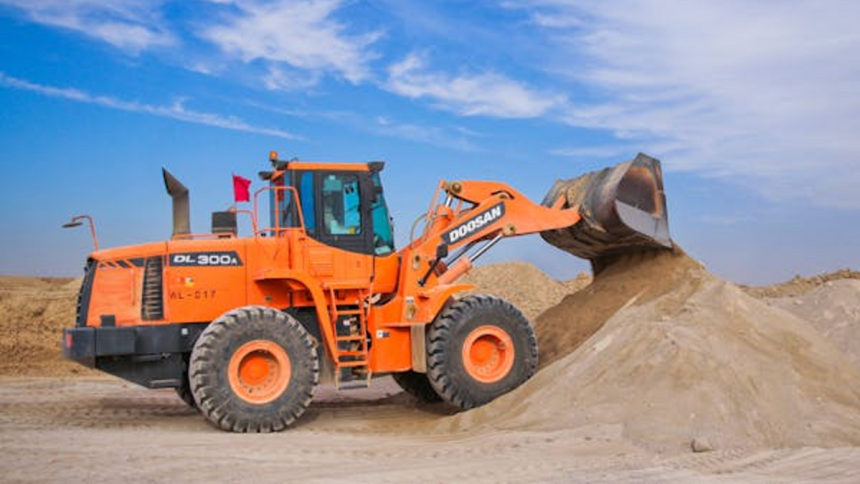Anyone who has ever wanted to build anything from a garden shed to a vast industrial workspace on open land will know that nothing happens without the necessary soil tests. You won’t even be able to start the digging process without assessing how stable and safe the ground is.
Doing the soil testing Melbourne authorities require is not just another thing to do to get your permit. There are significant benefits to having your soil testing done as accurately as possible. If you’re not entirely sure how the process works and what it entails, then this post is a must-read.
What Exactly is a Soil Test?
In Australia, a soil test is an assessment that’s done to analyse the characteristics of the ground you’re going to build on. The general reason for this is that it determines the soil’s suitability for different purposes, such as construction or agriculture. In some instances, both of these aspects may be planned for a specific piece of land.
In the construction process, soil tests are essential for determining the soil’s bearing capacity. This means how well the soil will be able to bear the weight of the types of structures you want to build.
Many Advantages to Look Forward to
Soil testing, or site classification, is an integral part of ensuring that your build is going to be compliant and safe. While you may think that this is just another technicality you have to follow on the road to your permit, it’s essential to know how this will benefit you and your project. Our experts have compiled a list of the top positives you can expect from a comprehensive soil test.
1. Assess the Type of Foundation Needed
The number one benefit you’ll get from you soil test is that it will help you assess what type of foundation your build will need. This can range from a standard slab for soil that doesn’t have any negative qualities to a more specialised solution such as piles for weaker soil.
Soil that has been found to have lower bearing capacity will need a reinforced foundation. This is so that the foundation will be strong enough to hold the anticipated weight of the building under any condition. You don’t want a building that’s going to collapse after the first severe thunderstorm.
2. Allows for Safety Planning
Soil tests also help you and your building contractors assess any potential safety hazards often associated with unstable or weak foundations. This can often include the following:
- Cracking
- Settling
- Structural failure
Knowing what the potential risks are will enable your team to use materials and designs that can combat the challenges of the soil. A common example of this is discovering that your soil is high in sulfur.
When this happens, the sulfur can seep into your foundation footing, causing the concrete to crack and become unstable. Knowing the sulfur is there will help your engineer choose a cement that contains anti-sulfur properties to combat this.
3. Saves You Money in the Long Run
Without soil tests, you may end up building on weak soil only to have your foundation crack and sag in the first year. This is commonly known as foundation failure and can be extremely costly to repair. In severe cases, repairs may not be possible. Weak soil may also see you spending a fortune on routine maintenance in the long term.
Having access to a comprehensive soil test allows the best precautions to be implemented before your build even starts. More effective planning combined with using the right preventative materials will save you money in the long run.
4. Ensures Compliance
The last thing any property owner needs is for their build to be deemed unsafe or uncompliant after the build has already been finalised. A comprehensive soil test ensures that your build is done safely and meets all the compliance requirements. A positive soil test will also enable your building permits to be issued.
5. Identifies Environmental Issues
Some issues, such as soil contamination, can cause severe environmental issues. By identifying these issues early, they can be addressed before the build even begins. This will ensure that you aren’t contravening any environmental protection codes down the line.
6. Peace of Mind
Having a soil test will give you peace of mind that your building is being built on stable ground with the best possible foundation. You will also have the assurance that the ground beneath your build can safely hold the weight of all the structures on it. This can also include any plans you may have for adding new structures, such as sheds or garages.
Final Thoughts
Soil tests are essential to determine how safe the foundation of your proposed building is going to be. In cases where the soil is found to be unstable, building contractors and engineers can design specialised foundations to ensure a safe and stable foundation. Use your soil test to create the most stable structure that you can safely use for years to come, no matter what happens in the environment around you!
Lynn Martelli is an editor at Readability. She received her MFA in Creative Writing from Antioch University and has worked as an editor for over 10 years. Lynn has edited a wide variety of books, including fiction, non-fiction, memoirs, and more. In her free time, Lynn enjoys reading, writing, and spending time with her family and friends.















